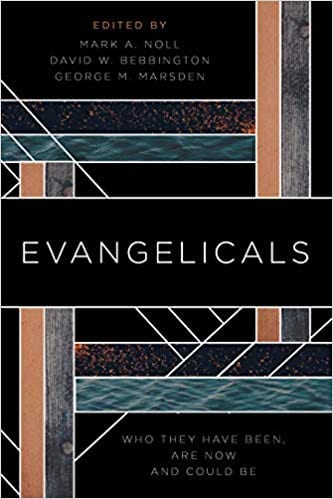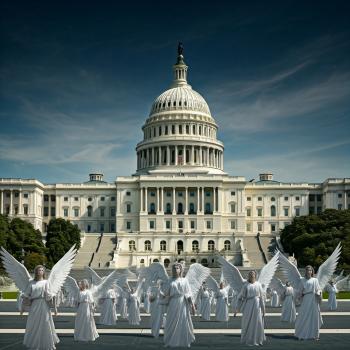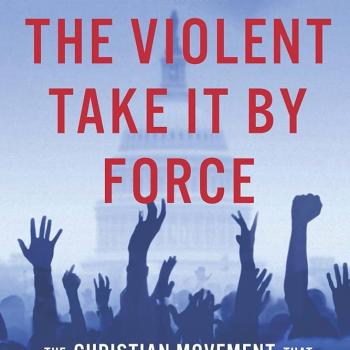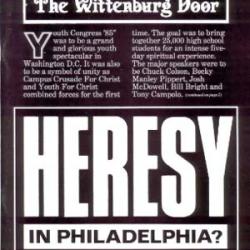I learned this week that Kylie Jenner has trademarked the phrase “Rise and shine.” TMZ tells us:
Kylie Jenner’s no fool … when she sees something that’s hot, she tries to own it, which is what she wants to do with the catch phrase, “Rise and Shine.”
Kylie filed legal docs asking the feds for ownership of a slang version of the famous wake-up call … “RIIISE AND SHIIINNEE.”
The trademark would cover belts, pants, coats, dresses, footwear, gloves, headbands, headwear, jackets, loungewear, scarves, sleepwear, socks, swimwear and undergarments … as well as cosmetics.
I’m told that if the Kardashians and TMZ declare something to be “hot” then, by gosh, it’s hot. It’s just strange to see that word applied by that crowd to something my mom said every morning throughout her life. It seems Mom was an unwitting trend-setter years ahead of her time. Savvy marketers may want to get ahead of this by filing for trademarks for other things my mother often said, like maybe “flibbertigibbet,” “skeeziks,” “timid soul,” “Lord willing and the creek don’t rise,” and “No, I’ll be fine, you go ahead.”
Apparently, Jenner walked into her infant daughter’s room and greeted the child with a sing-songy “Rise and Shine.” Like most of her family’s daily lives, the moment was captured on video and posted online, racking up a gazillion views on TikTok. Hence the viral trendy hotness of “Rise and Shine.”
It has been a slow-building hotness for a phrase that first appeared following the publication of the King James Bible in 1611, which included this translation of Isaiah 60:1, “Arise, shine; for thy light is come, and the glory of the Lord is risen upon thee.” From there the phrase made its way into various 17th-century religious texts before somehow in the 1800s getting adopted by the U.S. military as a semi-sarcastic sergeant’s call to rouse the troops. That filtered back into church culture through various children’s songs, including this horrifyingly glib retelling of the story of Noah the Lesser*:
If you try to make it through that video, keep in mind as you do that TMZ assures us this is hot. (For a variation of the song that actually does qualify as hot, and as an earworm-cleanser for the above, check out this 1981 recording of “Rise and Shine and Give God the Glory” by Albertina Walker. )
Jenner’s use of the phrase reminds us that the Kardashian/Jenner clan is, among many other things, evangelical. That’s not a part of their perpetual “branding,” nor is it something that gets played up much on their TV show, but the cultural signifiers of white evangelicalism pop-up here and there throughout the family’s multi-platform efforts to monetize the fame of being famous for being famous. (The family’s particular strain of Orange County white mega-church evangelicalism is, for example, how they ruined Kanye.)
The Kardashians/Jenners/Wests are probably the most famous white evangelical family in America.
 Pointing that out tends to raise the eyebrows (and the hackles) of the one-time white evangelical establishment, the pastors and pastor’s wives, donors and president/founders who imagine they decree and exemplify who does and does not qualify as a famous white evangelical family. If you asked those folks who the most famous white evangelical families were, they’d probably tell you it was the Grahams or the Falwells, the DeVoses, or some mega-church pastor’s clan. But none of those families are keeping up with the Kardashians. They’re not nearly as famous — even within white evangelicalism — as Kylie and Kim, et. al. Nor are they as famous as Justin and Hailey, or as Chris Pratt and whoever he married after breaking up with Anna Faris. Those old-guard white evangelicals may not even be as famous as the Chrisleys.
Pointing that out tends to raise the eyebrows (and the hackles) of the one-time white evangelical establishment, the pastors and pastor’s wives, donors and president/founders who imagine they decree and exemplify who does and does not qualify as a famous white evangelical family. If you asked those folks who the most famous white evangelical families were, they’d probably tell you it was the Grahams or the Falwells, the DeVoses, or some mega-church pastor’s clan. But none of those families are keeping up with the Kardashians. They’re not nearly as famous — even within white evangelicalism — as Kylie and Kim, et. al. Nor are they as famous as Justin and Hailey, or as Chris Pratt and whoever he married after breaking up with Anna Faris. Those old-guard white evangelicals may not even be as famous as the Chrisleys.
It’s true that those celebrities are not most famous for being white evangelicals, but that religious identity is widely known. And that is what all of them are no matter what the graying gatekeepers of the former evangelical establishment think of them. They may not have a firmly established firm “stance” on, say, the inerrancy of scripture, but they know all the words to a whole bunch of worship choruses that the folks who think of themselves as the real, true “leaders” of white evangelicalism have never even heard.
Leah Payne and Aaron Griffith try to gently explain what it means to the former white evangelical establishment that we are now living in a post-gatekeeper, post-establishment time. “Paula White-Cain’s Evangelical Support Squad Isn’t as Surprising as It Seems” they write for Christianity Today,** which isn’t as pithy as how Griffith summed it up on Twitter: “It’s Paula White’s (evangelical) world. We’re just living in it.”
White is a “prosperity gospel” preacher whose celebrity status/infamy has risen in recent years due to her enthusiastic allegiance to Donald Trump. Picture a less theologically rigorous version of Aimee-Leigh Gemstone and you’ve got the general idea. She is, as Payne and Griffith write, “a flamboyant, controversial celebrity who operates outside the traditional halls of power,” and someone who a generation ago would have been regarded as a fringe figure on the far-off edge of white evangelicalism.
This dismissal and diminution of the influence of such “fringe” figures probably wasn’t even accurate a generation ago, though, when white evangelical “leaders”*** were pretending that Christianity Today was more influential and more important than Charisma because it was more “respectable” despite having only a third as many subscribers. Even back then, supposedly “fringe” figures like Oral Roberts and Kenneth Copeland were more famous and more influential throughout white evangelicalism than most “evangelical leaders” were willing to admit.
The “Cain” in Paula White-Cain, by the way, is Jonathan Cain, the longtime songwriter and keyboardist for Journey. That puts White and Cain up there with Justin and Hailey among America’s most prominent white evangelical power-couples — a state of affairs that would have astonished my Timothy Christian School classmate Jason, who got grounded in 10th grade by his devout evangelical parents after they found a cassette of Journey’s Frontiers hidden in his bedroom.
Payne and Griffith conclude:
White-Cain’s public friendship with prominent conservative white evangelical leaders also puts the questions of who counts as an evangelical in high relief. Who are the real evangelicals and what is real evangelicalism? Is evangelicalism a spiritual category, a voting bloc, or something else altogether? Does White-Cain get her “evangelical card” for belonging to Trump’s evangelical advisory board? Does Franklin Graham lose his for promoting her work?
The fact that a good number of evangelicals are fretting about White-Cain’s doctrinal stances and her endorsers’ apparent disregard for them is surely proof that theology does matter in how we think about evangelicalism. And yet, American evangelicals’ theology is also embedded in culture. This cultural blend of pragmatism, self-help, celebrity, and conservative politics, intertwined with doctrinal hallmarks, offers a more comprehensive description of how modern evangelicalism actually works.
For those who do not share her theological disposition, it is wishful thinking to pretend that she is not a major force within American evangelicalism. It is now Paula White-Cain’s world. The question is how we should live in it.
Or, as another recent essay put it, “The ‘Weird’ Fringe is the Biggest Part of White Evangelicalism.” (You can read that in full at the link, or you can pre-order Evangelicals: Who They Have Been, Are Now, and Could Be and read it in print next month as part of a volume edited by the all-star dream team of religious historians Mark Noll, George Marsden, and David Bebbington. The book includes essays from all of the editors as well as contributions from Molly Worthen, Kristin Kobes Du Mez, Jemar Tisby, Thomas Kidd, and many others.)
– – – – – – – – – – – –
* Noah the Greater, the unambiguously good Noah, is disappointingly less famous. The story of her and her four sisters never seems to make into children’s picture Bibles or Sunday school materials or Vacation Bible School songs. You can go most of your life in a white evangelical church without ever hearing that story — even though the writers of the Bible thought it was so important that they included it three different times in scripture. This is the story of the five women who risked death by challenging Moses, five women who sued God and won.
** Christianity Today is a publication that believes gay and lesbian couples are “destructive to society.” That choice of words remains their choice and their insistence.
*** We know they’re leaders because they subscribe to Leadership Journal. Does Kylie Jenner subscribe to Leadership Journal? No. Does Paula White? No. QED.














